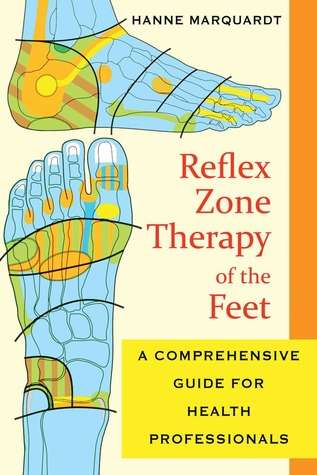Music can have a profound effect on both the emotions and the body. Faster music can make you feel more alert and concentrate better. Upbeat music can make you feel more optimistic and positive about life. A slower tempo can quiet your mind and relax your muscles, making you feel soothed while releasing the stress of the day. Music is effective for relaxation and stress management.
Research confirms these personal experiences with music. Current findings indicate that music around 60 beats per minute can cause the brain to synchronize with the beat causing alpha brainwaves (frequencies from 8 – 14 hertz or cycles per second). This alpha brainwave is what is present when we are relaxed and conscious. To induce sleep (a delta brainwave of 5 hertz), a person may need to devote at least 45 minutes, in a relaxed position, listening to calming music. Researchers at Stanford University have said that “listening to music seems to be able to change brain functioning to the same extent as medication.” They noted that music is something that almost anybody can access and makes it an easy stress reduction tool.
So what type of music reduces stress the best? A bit surprising is that Native American, Celtic, Indian stringed-instruments, drums, and flutes are very effective at relaxing the mind even when played moderately loud. Sounds of rain, thunder, and nature sounds may also be relaxing particularly when mixed with other music, such as light jazz, classical (the “largo” movement), and easy listening music. Since with music we are rarely told the beats per minute, how do you choose the relaxation music that is best for you? The answer partly rests with you: You must first like the music being played, and then it must relax you. You could start by simply exploring the music on this web page. Some may relax you, some may not. Forcing yourself to listen to relaxation music that irritates you can create tension, not reduce it. If that happens, try looking for alternatives on the internet or consult with Counseling Service staff for other musical suggestions. It is important to remember that quieting your mind does not mean you will automatically feel sleepy. It means your brain and body are relaxed, and with your new calm self, you can then function at your best in many activities.
Experiment now. Experience a “sound bath” and let the music carry you away
The links below each open relaxing musical selections in YouTube.
A Moment of Peace Meditation
Aneal & Bradfield, “Heaven and Earth Spirits” track from Life & Love). Lovely contemporary piano music with accompanying instruments and nature scenes.
Echoes of Time
C. Carlos Nakai from the Canyon Trilogy. Serene Native American flute music, with a picture of Nakai backlit by the sun at the Grand Canyon.
The Winding Path
Ken Kern from The Winding Path. Highly rated, beautiful piano music with accompanying instruments with pictures of exquisite flowers and plants.
Classical Indian Music for Healing and Relaxing
Gayatri Govindarajan, “Pure Deep Meditation” track. Lovely and rhythmic music played on the veena, the most ancient of the Indian plucked-instruments, with nature scenes.
Angels of Venice
Angels of Venice from Music for Harp, Flute and Cello. Classical with 3 instruments with nature pictures.
Earth Drum
“Spirit Vision,” (David & Steve Gordon. Serene and lovely contemporary Native American informed-drumming music utilizing Taos Log Drum and Incan Pan along with other instruments and ocean/forest nature scenes.
Buddha Spirit
Aneal & Bradfield from Light & Love. Reflective but strong contemporary music utilizing various instruments and occasional humming voices with colorful oscillating fractals
Spa Relaxing Music
Tranquil contemporary instrumental with piano and a fixed candle light.
Relaxation Music: 1-Hour Meditation Candle
Serene contemporary instrumental with piano and one flickering candle.
Sleep Deeply
Dan Gibson. Nature sounds and instrumental, tranquil sleep music.
Weightless
Marconi Union. The sounds on this video are carefully arranged harmonies, rhythms, and bass lines that help slow a listener’s heart rate, reduce blood pressure, and lower levels of the cortisol stress hormone.
Unchecked anxiety may greatly impact your quality of life. Take control by trying out the ideas below.
Anxiety isn’t all bad, though. It makes you aware of danger, motivates you to stay organized and prepared, and helps you calculate risks. Still, when anxiety becomes a daily recurrence, it’s time to act before it snowballs.
Some anxiety is a typical part of life. It’s a byproduct of living in a busy world.
With that being said, there’s a difference between everyday anxiety and anxiety disorders. Feeling anxious about something new or stressful is one thing, but when it gets to an uncontrollable or excessive point and starts to affect your quality of life, it could be a disorder.
However, it’s important to note that anxiety can present itself in different ways for different people. While one person may experience a butterfly feeling in their stomach, another might have panic attacks, nightmares, or painful thoughts.
Anxiety is your body’s natural response to stress. It’s a feeling of fear or worry that could be caused by a combination of factors that researchers believe range from genetics to environmental to brain chemistry. Some common symptoms of anxiety include:
You can make adjustments to habits, like exercise, sleep, and diet. You can also try something totally new, like aromatherapy or meditation. No matter what your lifestyle demands, there’s a natural way to help reduce anxiety for everyone.
There are also certain medications, like antidepressants and sedatives, that work to balance brain chemistry and prevent episodes of anxiety. They may even ward off the most severe symptoms. If you’re looking to go a more natural route, though, there are little and big ways you can help combat anxiety.
Anxiety can be treated in a variety of ways. One common treatment option is cognitive behavioral therapy (CBT) , which helps provide people with tools to cope with anxiety when it occurs.
1. Stay active
Regular exercise isn’t just about physical health — it can be a huge help to your mental health, as well.
A 2013 study found that people with anxiety disorders who reported a high level of physical activity were better protected against developing anxiety symptoms.
This could be for a variety of reasons. Exercise can divert your attention away from something that’s making you anxious.
Getting your heart rate up also changes the brain chemistry to create more space for anti-anxiety neurochemicals, like:
- serotonin
- gamma-aminobutyric acid (GABA)
- brain-derived neurotrophic factor (BDNF)
- endocannabinoids
According to the American Psychological Association (APA), regular exercise leads to an enhancement of concentration and willpower, which can help certain anxiety symptoms.
When it comes to what type of exercise, this is more of a personal preference. If you’re looking to really get your heart rate up, something like a HIIT class (high-intensity interval training) or running is your best bet.
But if you’re looking to start off with something with a little lower impact, workouts, like Pilates and yoga, could also be just as beneficial for your mental health.
2. Steer clear of alcohol
Drinking alcohol may take the edge off at first, since it’s a natural sedative. However, research suggests there’s a link between anxiety and alcohol consumption, with anxiety disorders and alcohol use disorder (AUD) occurring hand-in-hand.
A 2017 review that looked at 63 different studies showed that decreasing alcohol intake can improve both anxiety and depression.
Heavy drinking can interfere with the balance of neurotransmitters, which can be responsible for positive mental health. This interference creates an imbalance that may lead to certain symptoms of anxiety.
Anxiety may temporarily increase in early sobriety but can improve in the long run.
Alcohol has also been shown to disrupt your body’s natural ability to sleep by interfering with sleep homeostasis. And as we’ll later point out, a good night’s sleep is incredibly helpful when combating anxiety.
3. Consider quitting smoking cigarettes
Smokers often reach for a cigarette during stressful times. Yet, like drinking alcohol, taking a drag on a cigarette when you’re stressed is a quick fix that may worsen anxiety over time.
Research has shown that the earlier you start smoking in life, the higher your risk of developing an anxiety disorder later. Research also suggests nicotine and other chemicals in cigarette smoke alter pathways in the brain linked to anxiety.
If you’re looking to quit, there are lots of different ways you can get started. The Centers for Disease Control and Prevention (CDC) recommends finding a safe substitute for cigarettes, like toothpicks.
You can also take up habits that may distract you in order to create an environment that works for your smoke-free life. Additionally, you can make a plan with a support system who can provide everything from encouragement to distractions.
4. Limit caffeine intake
If you have chronic anxiety, caffeine is not your friend. Caffeine may cause nervousness and jitters, neither of which is good if you’re anxious.
Research has shown caffeine may cause or worsen anxiety disorders. It may also cause panic attacks in people with panic disorder. In some people, eliminating caffeine may significantly improve anxiety symptoms.
Similar to alcohol, caffeine and anxiety are often linked, due to caffeine’s ability to alter brain chemistry.
For example, a 2008 study showed that caffeine increases alertness by blocking the brain chemical adenosine, which is what makes you feel tired, while at the same time triggering the release of adrenalin.
With all this being said, a moderate intake of caffeine is safe for most people.
However, if you’re looking to cut back or completely cut out caffeine, you’ll want to start by slowly reducing the amount of caffeine you drink daily.
Start replacing these drinks with water to quench the thirst. This will not only satisfy your body’s need to drink a liquid, but it will also help flush caffeine from your body and keep you hydrated.
Gradually reducing your caffeine over the course of a few weeks can help adjust the habit without the body going through withdrawal.
5. Prioritize getting a good night’s rest
Sleep has been proven time and time again to be an important part of good mental health.
Even though a 2012 survey found that nearly a third of adults get less than 6 hours of sleep a night, the CDC recommends that adults get 7 to 9 hours of sleep every day.
You can make sleep a priority by:
- only sleeping at night when you’re tired
- not reading or watching television in bed
- not using your phone, tablet, or computer in bed
- not tossing and turning in your bed or going to another room if you can’t sleep
- avoiding caffeine, large meals, and nicotine before bedtime
- keeping your room dark and cool
- writing down your worries before going to bed
- going to sleep at the same time each night
6. Meditate and practice mindfulness
A main goal of meditation is full awareness of the present moment, which includes noticing all thoughts in a nonjudgmental way. This can lead to a sense of calm and contentment by increasing your ability to mindfully tolerate all thoughts and feelings.
Meditation is known to relieve stress and anxiety and is a primary facet of CBT.
Research from John Hopkins suggests 30 minutes of daily meditation may alleviate some anxiety symptoms and act as an antidepressant.
How to meditate
There are 9 popular types of meditation:
- mindfulness meditation
- spiritual meditation
- focused meditation
- movement meditation
- mantra meditation
- transcendental meditation
- progressive relaxation
- loving-kindness meditation
- visualization meditation
Mindfulness meditation is generally the most popular form. To mindfully meditate, you can close your eyes, breathe deeply, and pay attention to your thoughts as they pass through your mind. You don’t judge or become involved with them. Instead, you simply observe them and take note of any patterns.
7. Eat a balanced diet
Low blood sugar levels, dehydration, or chemicals in processed foods, such as artificial flavorings, artificial coloring, and preservatives, may cause mood changes in some people. A high-sugar diet may also impact temperament.
If your anxiety worsens after eating, check your eating habits. Stay hydrated, eliminate processed foods, and eat a balanced diet rich in complex carbohydrates, fruits and vegetables, and lean proteins.
8. Practice deep breathing
Shallow, fast breathing is common with anxiety. It may lead to a fast heart rate, dizziness or lightheadedness, or even a panic attack.
Deep breathing exercises — the deliberate process of taking slow, even, deep breaths — can help restore normal breathing patterns and reduce anxiety.
9. Try aromatherapy
Aromatherapy is a holistic healing treatment that has been used by humans for thousands of years. The practice uses natural plant extracts and essential oils to promote the health and well-being of the mind, body, and spirit. Its goal is to enhance both physical and emotional health.
The essential oils created by the natural plant extracts may be inhaled directly or added to a warm bath or diffuser. Aromatherapy is suggested to:
- help you relax
- help you sleep
- boost mood
- reduce heart rate and blood pressure
Some essential oils believed to relieve anxiety are:
- bergamot
- lavender
- clary sage
- grapefruit
- ylang ylang
10. Drink chamomile tea
A cup of chamomile tea is a common home remedy to calm frayed nerves and promote sleep.
A 2014 study showed chamomile may also be a powerful ally against GAD. The study found people who took German chamomile capsules (220 milligrams up to five times daily) had a greater reduction in test scores that measure anxiety symptoms than those who were given a placebo.
Another 2005 study found that chamomile extract helped sleep-disturbed rats fall asleep. Researchers believe that the tea may function like benzodiazepine, binding to benzodiazepine receptors and having benzodiazepine-like hypnotic activity.
Interested in other resources for mental health?
We’re here to help. Explore our evidence-driven reviews of top providers, products, and more to support your physical and emotional well-being.



